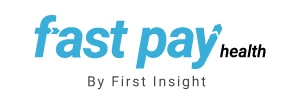Medicare Advantage Billing Tips That Boost Your Revenue
/Is your eye care practice struggling with increased Medicare Advantage claim denials? Not sure how to keep up and capitalize on the growing popularity of Medicare Advantage plans versus traditional Medicare?
In this blog, we’ll review the latest Medicare Advantage trends, requirements, and insurance billing tips that will improve the financial health of your eye care practice.
Medicare Advantage Enrollment Trends
More than 51% (30.8 million) of U.S. Medicare beneficiaries are enrolled in a Medicare Advantage (also known as MA, Medicare Part C, or Medicare replacement) plan, and enrollments continue to grow each year. Only a small percentage of Medicare Advantage enrollees voluntarily switch back to traditional Medicare.
Image Source: Kaiser Family Foundation
Depending on your state or city, the number of Medicare patients enrolled in a Medicare Advantage plan varies widely, reports the Kaiser Family Foundation.
Image Source: Kaiser Family Foundation
Medicare Advantage Billing Requirements You Can’t Ignore
Medicare Advantage Plans Follow CMS Rules
Medicare Advantage plans are offered through private insurance companies. Medicare must approve these plans and follow the Centers for Medicare and Medicaid Services (CMS) rules and guidelines regarding billing, coding, claims submission, and reimbursement.
Medicare Advantage plan options include health maintenance organizations (HMO), preferred provider organizations (PPO), private fee-for-service (FFS) plans, special needs plans, and Medicare medical savings accounts (MSA) plans.
Related: CMS FAQs on 2024 Medicare Advantage Rule
Medicare Advantage Plans Are Not Supplemental Plans
Medicare Advantage plans must cover all traditional Medicare services, including Part A (hospital insurance) and Part B (medical insurance) coverage. Most Medicare Advantage plans cover Part D coverage (prescription drugs).
If a patient has a Medicare Advantage plan, do not bill traditional Medicare. Do not confuse Medicare Advantage plans with supplemental plans. Supplemental plans are billed after traditional Medicare pays.
Vision Benefits Vary from Plan to Plan
Many Medicare Advantage plans offer extra coverage for vision-related items or services, such as preventive and routine vision coverage, eyeglasses, and intraocular lenses (IOLs) related services.
Vision benefits and coverage vary from plan to plan, and rules can change yearly. Each Medicare Advantage plan charges different out-of-pocket fees and has rules for how you get paid for your services.
Related: Vision Plans vs. Medical Insurance: When Should You Bill?
Provider Payments
Medicare Advantage payers usually pay providers on a per member per month (PMPM), partial or full-capitation, or a percent-of-revenue basis.
Critical ProTips for Processing Medicare Advantage Claims
Verify Patient’s Insurance Benefits and Check Eligibility
To avoid costly delays in claim rejections and denials, verifying every patient’s insurance plan information before their visit is important. Some patients might not even realize they are enrolled in a Medicare Advantage plan and may only give you their Medicare card.
By checking eligibility in advance, your office can ensure claims are filed to the correct payer right after the patient’s visit. You might even find the patient has additional vision coverage through another vision insurance plan they weren’t even aware they had.
Medicare keeps a record of reported “crossover plans,” including supplemental coverage or vision insurance plans. A quick eligibility check can save you time down the line.
Related: Reduce Denied Claims with Proactive Insurance Eligibility Verification
Don’t Get Lost in Payer Portals
When checking eligibility and benefits verification, getting lost in the different payer portals or Interactive Voice Response (IVR) systems is easy. However, verifying a patient’s insurance eligibility and benefits is a critical first step you can’t ignore.
A complete optometric billing and revenue cycle management (RCM) service like Fast Pay Health tackles the insurance eligibility and benefits verification process easily—saving you and your staff time and money.
Related: 5 Optometric Billing Tips to Improve Practice Operations
Boost Your Business Revenue with an Efficient Optometric Billing Service
The financial health of your eye care practice depends on higher efficiency and full-service RCM support.
At Fast Pay Health, our prescription for your practice is smarter RCM solutions. We know the ins and outs of your insurance payers best, and we work with ANY optometry and ophthalmology EHR and practice management software.
Book a free RCM practice analysis now to see how we help you get paid faster and reduce the accounts receivable cycle. Let us handle the billing hassles, so you have more time with your patients.




